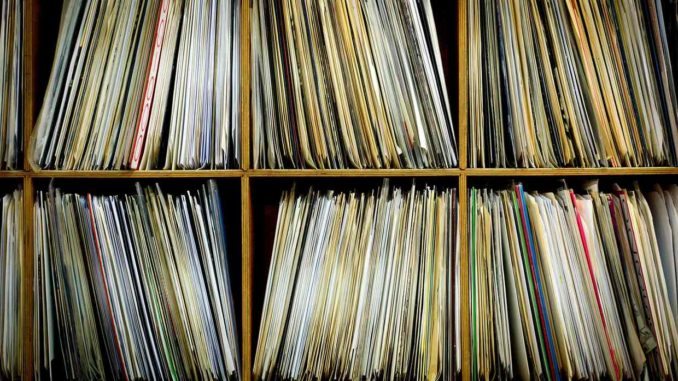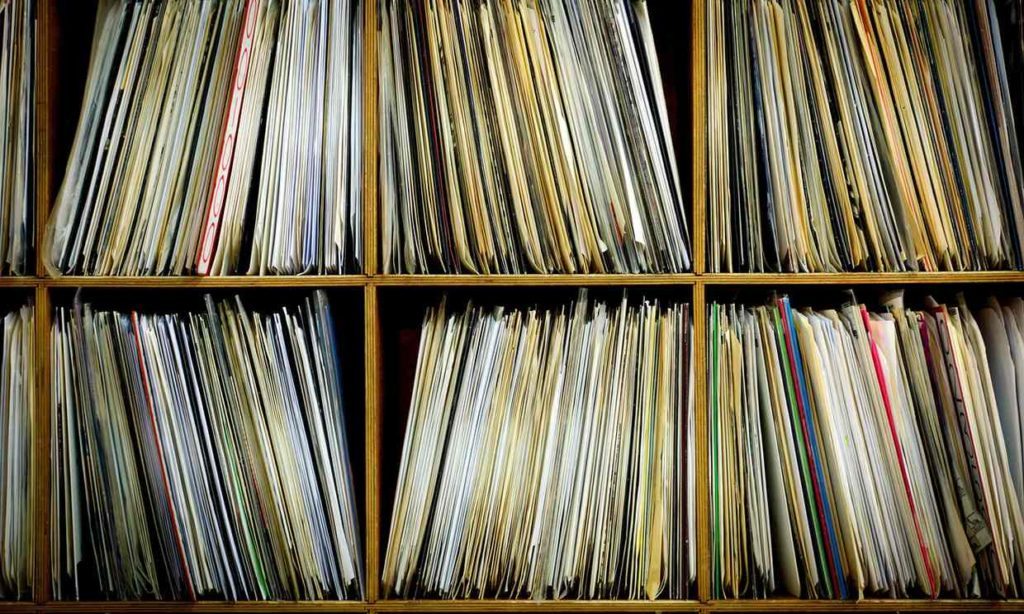
Original Rockers’ author explains how a Bristol record shop he worked at tells a chapter of the city’s cultural history – and an intimate part of his own story.

Revolver was an intimidating but beguiling record shop in Bristol where I worked during my 20s. Although I was confident it would make an interesting subject, I was wary of writing about somewhere so redolent of my youth. My intention was to evoke the peculiar atmosphere of Revolver and the sense I often felt there that time had undergone some form of adjustment. This was an experience I had accepted as part of my job, as I spent days alone in an empty, badly lit shop with a remarkable and idiosyncratic record collection at my disposal. As I listened to music in this environment, with barely any responsibilities other than to be a presence behind the counter, the records I heard seemed to connect directly with my subconscious.
While reading Teju Cole’s Open City I had been struck by the manner in which the narrator and his surroundings interchanged roles as observers of the world around them, and wondered if I could adapt the idea to explore the relationship between music and place. The records I first encountered in Revolver, from fairly obscure avant-garde compositions to mid-seventies dub to Virginia Astley to Massive Attack, provided a context for these exploratory mental journeys. As the book grew into an examination of how time, our surroundings and passion for discovery shape us, I hoped the reader might recognise a similarly intense attachment to somewhere from their own lives.
If Original Rockers is a memoir, it is a memoir of an absent space.Modern Nature by Derek Jarman was an influence, as it demonstrated how one’s past and passions might be written about objectively, without lapsing into solipsism. After a certain age, nostalgia feels uncontrollable and the idea of being sentimental about a subject so prone to caricature as a record shop was one I was determined to avoid. Although I was writing about my experiences, it was the shop, rather than myself, that was the subject.
There were many anecdotes to illustrate Revolver’s eccentricities at my disposal: the shop was raided by police convinced it was an LSD factory, the owner was kidnapped by concert promoters, our customer service was predicated on a dreadful musical snobbery that often resulted in animated disagreements. Such incidents were certainly entertaining, but it was Revolver’s presence in the city as a meeting point for the dispossessed, who largely made up our clientele and who felt temporarily at ease with themselves within the shop’s four walls, that I most wanted to celebrate.
As I began work on the book, the then-mayor of Bristol, George Ferguson, in a process that is as familiar as it is banal, was exploiting the city’s reputation for bohemianism and individuality as an incentive to attract investment from property

speculators. This encouraged me to emphasise how the perceived cultural capital of the city was the result of years of illegal and semi-legal behaviour, of people coming together at sound systems, blues parties and in front of graffiti-decorated walls, to demonstrate their legitimate sense of injustice at how the city had treated its less affluent areas and citizens in the past. I also felt that, through initiatives such as Record Store Day and the recent narrative of vinyl’s renaissance, record shops themselves were undergoing a form of gentrification.
On publication, Original Rockers was variously described as “moving” and “intensely personal”. It was intensely personal: my mother, who had been seriously ill, died shortly after I completed the first chapter. Some months later, when two thirds of the book had been written, my father was diagnosed with an advanced cancer. Although the book concludes in the present I felt it unnecessary to share these details with the reader, but my emotions doubtless seeped into the pages.
While completing the book I spent a great deal of time in the dream state elicited by grief, which provided me with the same unconscious receptiveness to music I had first experienced when sitting on a stool behind the counter in Revolver. I was once more overwhelmed by the act of listening to records. It is perhaps this extraordinary capacity for music to influence and sustain our lives that is the true subject of Original Rockers.
Read more here at The Guardian
Find the best selection of used, second hand, collectable, rare Vinyl Records at eil.com here



Be the first to comment